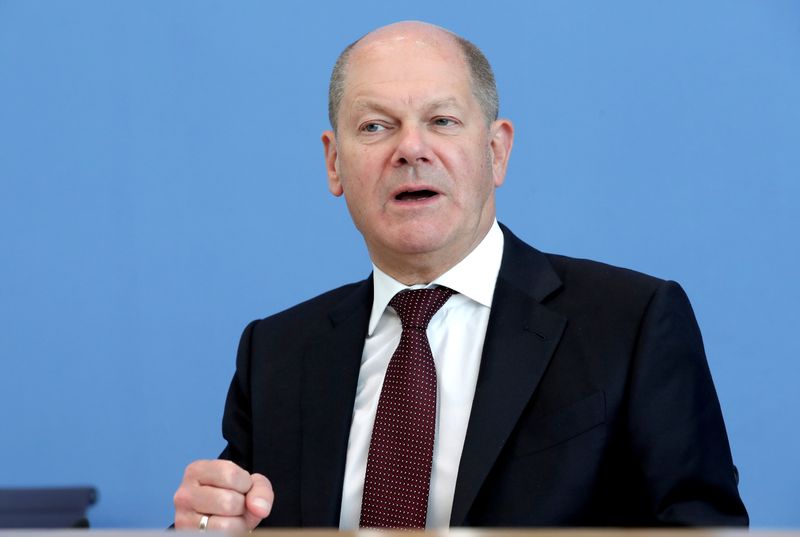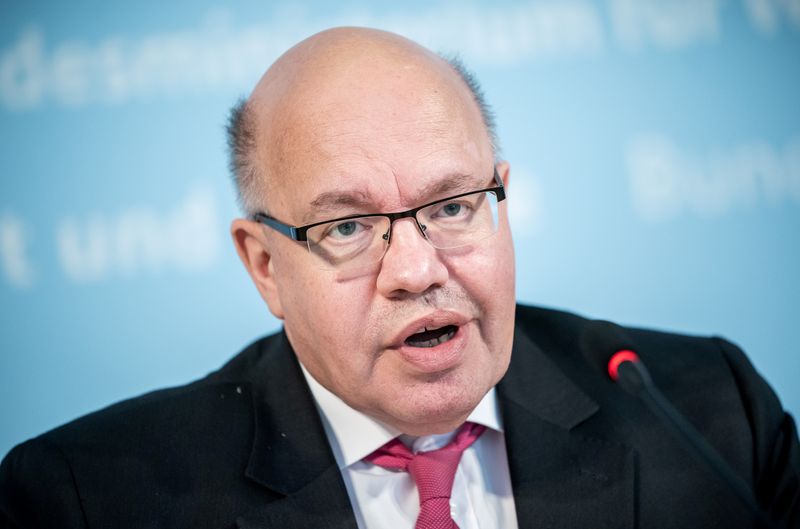BERLIN (Reuters) – Chancellor Angela Merkel’s ruling coalition is working on a stimulus package to support the recovery from the coronavirus pandemic which is expected this year to plunge Europe’s largest economy into its steepest recession since World War Two.
Finance Minister Olaf Scholz from the co-governing Social Democrats (SPD) and Economy Minister Peter Altmaier from Merkel’s Christian Democrats (CDU) are expected to present the measures next week, which they say should be “timely, targeted, temporary and transformative”.
Below are the main proposals and key points of contention on which officials must find a compromise.
SIZE
The fiscal stimulus package, which comes on top of an unprecedented 750 billion-euro ($824 billion) rescue package agreed in March, will include measures worth between 50 and 100 billion euros, government and coalition sources said.
The government will have to present another debt-financed supplementary budget for this, in addition to the already agreed 156 billions euros of new borrowing.
MORE FUNDS FOR SMALL COMPANIES
Altmaier wants the package to include more liquidity aid for the self-employed and firms with fewer than 250 employees struggling with plunging sales due to the crisis. This would cost more than 25 billion euros until August.
Altmaier also wants to help the private sector by making it easier to offset losses against taxes on previous profits and by granting more write-off possibilities for certain investments.
LOWER TAXES TO BOOST CONSUMPTION
Scholz and some conservative lawmakers are in favour of bringing forward an already agreed abolition of the solidarity surcharge to July 1. This would cost at least 5 billion euros.
Parties agreed last year to abolish the ‘soli’ tax surcharge introduced in 1991 to help finance the cost of reuniting West and East Germany for more than 90% of taxpayers from 2021.
In contrast to the conservatives, Scholz is against granting the relief for all taxpayers which would include the upper 5% high-income households.
CASH HANDOUTS TO SUPPORT CONSUMPTION
Scholz and SPD lawmakers want to support families with cash handouts of 300 euros per child. This would cost some 5 billion euros. The conservatives are expected to back this proposal.
DEBT RELIEF FOR TOWNS
Scholz wants to help municipalities, in charge of a large chunk of public investments, with a cash injection worth 12 billion euros to compensate for plunging tax revenues and extra relief for heavily indebted towns worth 45 billion euros. The conservatives have voiced objections.
SUPPORT FOR CAR INDUSTRY
Altmaier and Scholz are mulling additional support for the car industry, including subsidies for environmentally friendly technologies and cash incentives to buy new cars with zero or at least low carbon emissions, but details are still unclear.
($1 = 0.9105 euros)
(Reporting by Michael Nienaber and Christian Kraemer, editing by Ed Osmond)




















